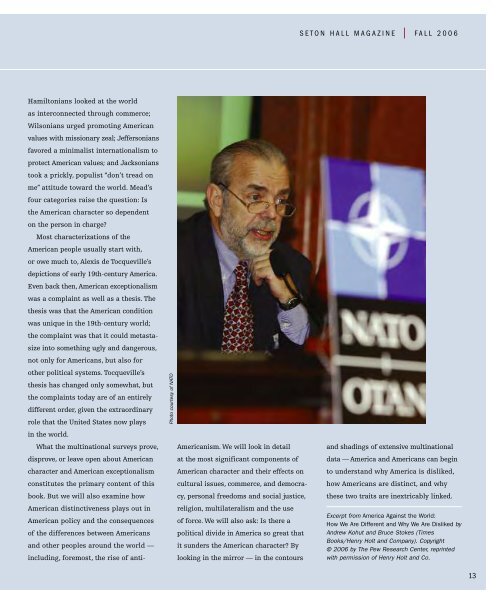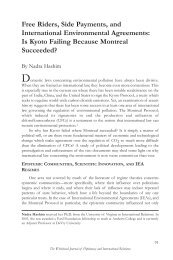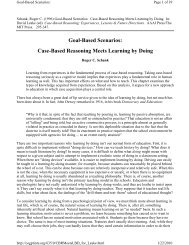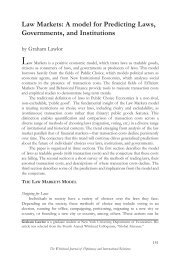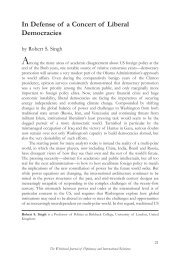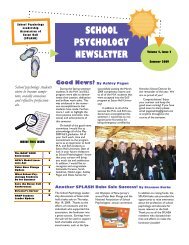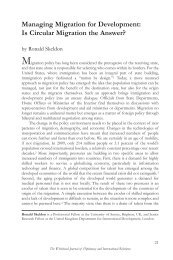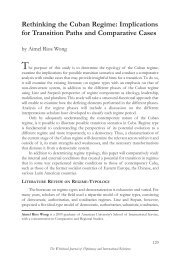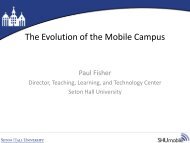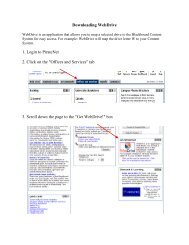2006 fall magazine - Seton Hall University
2006 fall magazine - Seton Hall University
2006 fall magazine - Seton Hall University
Create successful ePaper yourself
Turn your PDF publications into a flip-book with our unique Google optimized e-Paper software.
Hamiltonians looked at the world<br />
as interconnected through commerce;<br />
Wilsonians urged promoting American<br />
values with missionary zeal; Jeffersonians<br />
favored a minimalist internationalism to<br />
protect American values; and Jacksonians<br />
took a prickly, populist “don’t tread on<br />
me” attitude toward the world. Mead’s<br />
four categories raise the question: Is<br />
the American character so dependent<br />
on the person in charge?<br />
Most characterizations of the<br />
American people usually start with,<br />
or owe much to, Alexis de Tocqueville’s<br />
depictions of early 19th-century America.<br />
Even back then, American exceptionalism<br />
was a complaint as well as a thesis. The<br />
thesis was that the American condition<br />
was unique in the 19th-century world;<br />
the complaint was that it could metastasize<br />
into something ugly and dangerous,<br />
not only for Americans, but also for<br />
other political systems. Tocqueville’s<br />
thesis has changed only somewhat, but<br />
the complaints today are of an entirely<br />
different order, given the extraordinary<br />
role that the United States now plays<br />
in the world.<br />
What the multinational surveys prove,<br />
disprove, or leave open about American<br />
character and American exceptionalism<br />
constitutes the primary content of this<br />
book. But we will also examine how<br />
American distinctiveness plays out in<br />
American policy and the consequences<br />
of the differences between Americans<br />
and other peoples around the world —<br />
including, foremost, the rise of anti-<br />
Photo courtesy of NATO<br />
Americanism. We will look in detail<br />
at the most significant components of<br />
American character and their effects on<br />
cultural issues, commerce, and democracy,<br />
personal freedoms and social justice,<br />
religion, multilateralism and the use<br />
of force. We will also ask: Is there a<br />
political divide in America so great that<br />
it sunders the American character? By<br />
looking in the mirror — in the contours<br />
S E T O N H A L L M A G A Z I N E | F A L L 2 0 0 6<br />
and shadings of extensive multinational<br />
data — America and Americans can begin<br />
to understand why America is disliked,<br />
how Americans are distinct, and why<br />
these two traits are inextricably linked.<br />
Excerpt from America Against the World:<br />
How We Are Different and Why We Are Disliked by<br />
Andrew Kohut and Bruce Stokes (Times<br />
Books/Henry Holt and Company). Copyright<br />
© <strong>2006</strong> by The Pew Research Center, reprinted<br />
with permission of Henry Holt and Co.<br />
13


